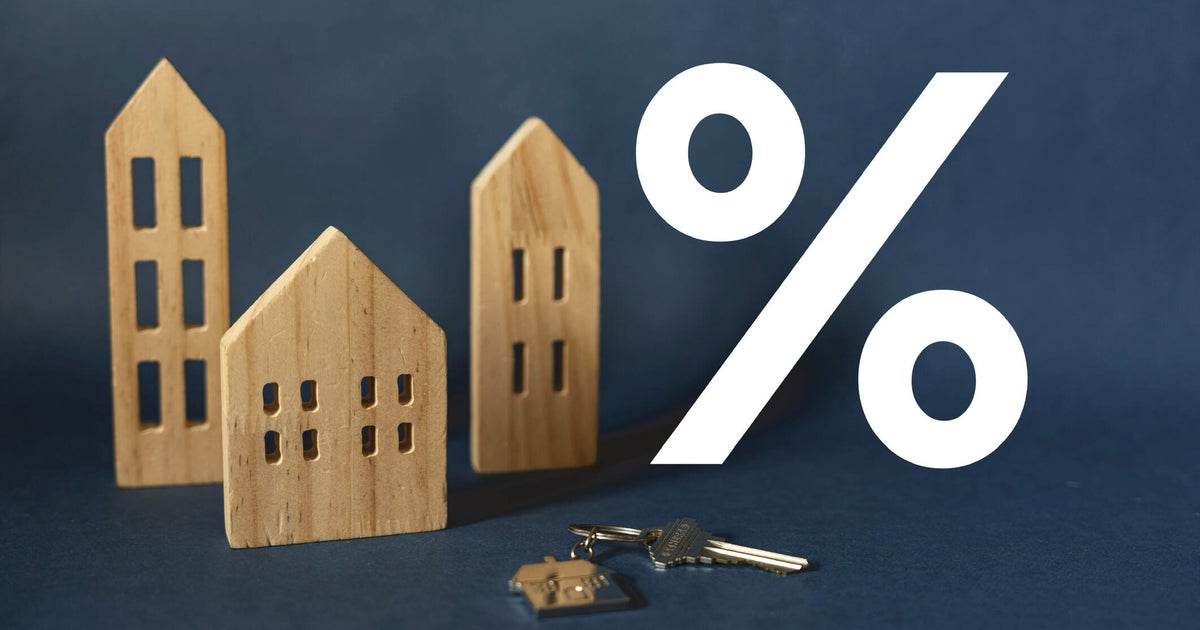Mortgage interest rates drop for the 8th week. Should you lock one in now?
Last week, the Federal Reserve slashed its benchmark rate by 50 basis points, providing much-needed relief to borrowers who have been grappling with high rates over the past two years. While the Fed's decision impacts a wide range of borrowing options, it's particularly notable in the mortgage sector, where homebuyers have been feeling the pinch due to high mortgage rates.
In the days leading up to the Fed's announcement, the average mortgage rate dipped to 6.15%, due in large part to lenders preemptively factoring in the anticipated rate cut. But the actual cut, which exceeded expectations, helped to push rates even lower. Following the rate cut, the average mortgage rate fell for the eighth week in a row, according to new data from the Mortgage Bankers Association, with rates dropping to 6.13% — their lowest point in over two years.
More Fed rate cuts could be on the horizon in the coming months, though, which could have a further impact on mortgage rates. This raises a critical question for homebuyers: Should you lock a rate now or should you wait?
Don't miss out on today's best mortgage rates. Compare your loan options now.
Should you lock in a mortgage rate now?
The idea of locking in a mortgage rate now may be tempting, given that rates have been trending downward, alleviating some of the financial pressure on homebuyers. The decision is not one-size-fits-all, though. Whether or not it makes sense hinges on several factors, including your financial situation, housing market conditions and your optimal timeline.
That said, there are some compelling reasons to consider locking in a rate now. For starters, at 6.13%, mortgage rates are sitting at their lowest point in over two years, so locking in a rate now allows you to secure a low borrowing cost. And even if rates drop slightly more in the coming months, the difference may be marginal compared to today's mortgage rates.
There's also no guarantee that rates will drop lower in the future. While the Fed's actions suggest the possibility of more rate cuts, predicting the exact trajectory of interest rates is difficult. Economic conditions can change rapidly, and unforeseen global or domestic events could drive rates higher. If inflation begins to accelerate, mortgage rates could also rise along with it. Locking in a rate now shields you from this potential risk.
It's also important to remember that mortgage rates aren't the only factor affecting home affordability. Available inventory also plays a role, as do many other factors, and in a competitive housing market, waiting for a lower rate might mean missing out on a home you love. After all, as mortgage rates fall, more buyers are likely to enter the market, driving up home prices and the competition for available homes. Locking in a low rate now can help you act quickly when you find the right property.
But while locking in a mortgage rate now has clear advantages, waiting for further rate cuts could also pay off for those willing to take on some risk. For example, if the Federal Reserve continues its rate-cutting campaign over the next few months, mortgage rates could drop even further. If you're in no rush to buy, waiting might allow you to take advantage of lower rates down the line.
Explore the best mortgage rates available to you now.
How to get an even lower mortgage rate now
If you decide that now is the right time to lock in a mortgage rate, there are several strategies you can employ to secure an even lower rate.
- Shop around for lenders: Mortgage rates can vary significantly from one lender to another. By getting quotes from multiple lenders, you increase your chances of finding a more competitive rate.
- Improve your credit score: Lenders typically reserve the lowest mortgage rates for borrowers with excellent credit scores, so you may want to take steps to improve yours before applying for a mortgage. Paying down outstanding debt, avoiding new credit inquiries and making timely payments on existing accounts can boost your score and help you qualify for better rates.
- Consider a shorter loan term: Shorter-term loans, such as 15-year mortgages, usually come with lower interest rates. If you can afford higher monthly payments, choosing a shorter loan term could save you money on interest over the life of the loan.
- Buy mortgage points: Mortgage points are fees paid upfront to reduce your mortgage rate, with each point typically costing 1% of the loan amount. While this involves a higher initial outlay, it can result in significant long-term savings if you plan to stay in your home for several years.
The bottom line
While mortgage rates are currently at attractive levels, the decision to lock in a rate now or wait for potentially lower rates is a personal one. It depends on your circumstances, risk tolerance and financial goals. But by understanding the factors at play and employing strategies to secure the best possible rate, you can make an informed decision that aligns with your homeownership dreams and financial well-being.




